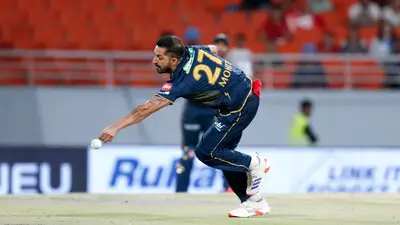Recommended Stories
"I am by no means an expert in the Indian school education system, but from my limited experience I perceive the enormous diversity of your school system, some institutions dealing with extremely limited means and very crowded classrooms, whereas others have exceptional plush surroundings I have never seen in my own country," says the former head of the Laboratory of Physics and Condensed Matter at the University of Nice in France where she is now a Professor Emeritus.
"Nevertheless, the workshops I gave in all kind of surroundings were received with the same enthusiasm and quality of attention, independent of the economic status of the school. The curiosity and liberty the students showed in their participating and questioning during and after my presentation were very much linked to the quality and interest of their teachers. I have the feeling an army of talents is at work to try and promote better education, the key being, like everywhere else, to have enthusiastic teachers," Ostrowsky told PTI.
Her book "The Agenda of the Apprentice Scientist" was recently translated into English for Indian students. The sourcebook of experiments has collection of 365 simple activities, which the author, has designed in such a manner that an activity per day is suggested throughout the year.
More importantly, it encourages one to experiment with materials, to play, draw, cut, construct, write, think, observe and create, and in the process discover the answers to questions by oneself. This art of learning by doing is not a habit actively practiced in Indian educational setups, while in the West this is the norm.
Ostrowsky feels too much weight is sometimes given to rote memorisation instead of trying to understand concepts.
"When I asked in many classes what white light was, I got the immediate and standard answer from every kid in the class `white light is made out of seven colours`; of course I asked `why seven?` and there was a total silence; so we started discussing how, with just three colours ? red, green and blue, you can reconstruct all the colours you know, including white, like in colour printers or in TV or computer colour screens," she says.
According to the author, activities take time, and sometimes teachers may feel they won`t have time to finish the syllabus, or parents could be afraid their children are "playing" too much at school. "I remain convinced that in depth understanding of phenomenon is worth far more than an encyclopaedic memorisation of them."
Ask her about the perfect mode of education for a child and Ostrowsky says, "Curiosity, which is the basis of science, exists in any child and should be nurtured in all environments, and at all ages. Simple hands on activities such as those proposed in the agenda are one way to stimulate this curiosity and make people understand that science is part of our daily life, and not only restricted to the classroom.
"Parents can encourage this curiosity by taking their children`s frequent questions seriously and thinking about them. I often tell my audience that trying to understand the world around them should be like trying to solve a mystery from a detective`s point of view: To find your answers, you have to ask around, go on the internet, compare your answers, try to find some logic in what you learn, and see how it fits with what you already know."
She goes on to say, "A child learns everything with all his five senses. He does it by himself, exploring the world around him, and if his parents and his teachers help him, he will learn much more and much faster. Of course, more theoretical discussions will help organising his knowledge, but this should come at the right time, once the child is curious about a phenomenon he has discovered and started to explore."
Parents, according to her, should nurture the curiosity in their children and "it will be with him all his life. Tell him: `Keep your eyes open, do not be afraid to ask questions, to wonder about the world around you. Asking good questions is just as important as getting good marks`."












